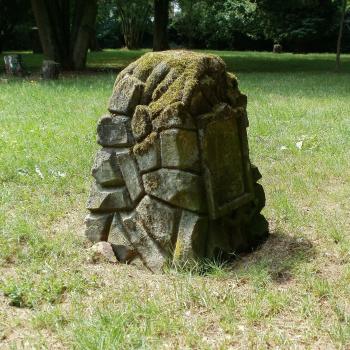I’ve been writing each week as a part of the Pagan Blog Project, though rather than posting about some topic relevant to modern Pagandom I have been writing myths and stories about the gods and spirits I work with. This has been incredibly helpful in both consistent practice writing (which had always been an issue before) and in pushing myself to really understand the stories I’m writing or create more. Not all of the stories are ‘revealed’ – far more are based on impressions I receive during prayer or spirits who I want (and want themselves!) to share with other people. I like storytelling (but shy from calling myself a storyteller) and find it is one of the best ways to share with others and often helps inspire other people’s thoughts and bring about lovely connections or possibilities.
Tomorrow’s word is ‘faith’, and I’ve tried to incorporate both the more traditional concept of faith and faith-as-experience into the story. I posted it up early on my preferred social media site for feedback, and before it goes out I’ll put it through another revision and edit. I’ve also written next Friday’s story (with the word ‘fall’) and reached out to people to proof and revise it.
In writing, beta readers (editors!) are incredibly valuable, and if you really want to hone yourself as a writer you should use them. (In my opinion. Writing is ridiculously individual.) Beta readers can catch small plot holes that could become very big, clean up any awkward sentences, fix grammatical mistakes, and generally just patch up your writing. They can also point out when a detail isn’t needed or doesn’t make sense. They ask, “Is this really necessary?” Or, alternatively, “Can you explain how [x] happened?” In fanfiction – one of my preferred ‘spaces’ to draw reading material from – beta readers are almost a hot item, and ones that give good critique are desperately wanted.
But, as a writer, you can’t let an editor or beta reader take over. You don’t have to take every recommendation. You’re not supposed to roll on your back and bare your stomach. There will be recommendations or adjustments that you don’t like. They may give advice that misses the mark entirely. That’s okay. They aren’t supposed to be little advice boxes that you put your work into and they feedback perfection.
But we have to be self-aware enough to know when their advice is good but challenging – when to take their advice and when not to.
This, I think, ties into discernment and religious experiences. Though it ties in for me because I write myths and want to improve them – I have the inspiration, now I have to forge the whole – it also connects to other religious experiences. Perhaps we feel that a new side of a god has been revealed to us (either through experience or reading about that god), but we’re not sure of the ‘validity’ of that revelation. We can approach others who work with or know that god and discuss the experience with them. We can search through other books to see if something similar pops up. We have to review the revelation ourselves as well.
This is helpful for keeping away from wild goose chases or tumbling down into a world full of sock puppets or manipulative spirits. We need to question and wonder and doubt, and I, for one, would be very worried if I no longer questioned myself or my experiences.
But we also can’t deny when something just rings for us, when it tugs and pulls at us and is undeniable. We have to find a balance between discernment and accepting what we personally can’t deny. (But even those undeniable parts of our lives should be questioned, constantly, to keep us on our toes.) We have to question why we resist criticism but also know when we have to keep that scene or detail. It is constant balance, which means constant adjustment and change.












